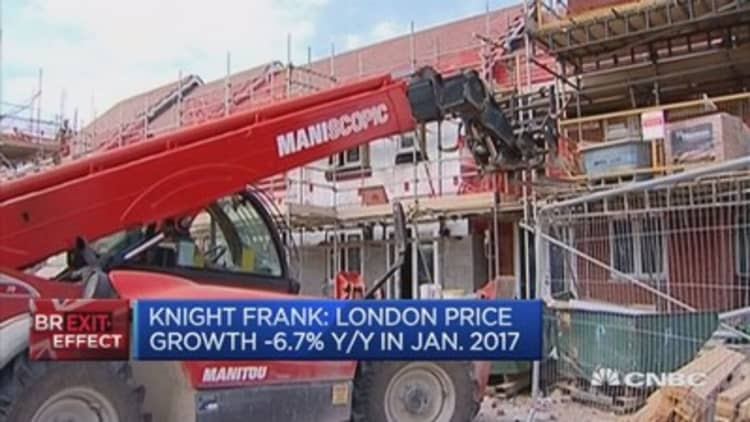The U.K. government unveiled Tuesday its proposals to solve the severe housing shortage in the country to a calmly enthusiastic reception from the property industry, who admired its scope but see an uphill struggle to correct years of inadequate policy initiatives.
As had been well-flagged during the few months of delay before Tuesday's release, the key feature of the white paper was a shift in emphasis towards boosting supply rather than stimulating demand.
The change in tone towards support for a variety of housing solutions -- including a concerted drive to improve the attraction of renting for the longer term and initiatives concentrated on enhancing community living solutions -- flies in the face of years of government measures aimed at encouraging and advocating home ownership.
"The government is absolutely headed in the right direction with this paper which takes a really important step towards delivering the right number and type of new houses for the next decade and beyond," affirmed Adam Challis, Head of U.K. Residential Research at Jones Lang LaSalle (JLL) via phone to CNBC.
Most important was that the paper provides a guidelines on how both the public and private sectors should tackle the shortage in supply, agreed Melanie Leech, Chief Executive of the British Property Federation, in emailed comments to CNBC.

"There is no silver bullet but we welcome the proposals to overhaul the housing system, embracing different tenures such as Build-to-Rent and supporting innovation in the form of modern methods of construction," Leech added.
Of the raft of initiatives, three garnering the most attention were those focused on land availability, the rental sector and modular construction.
"What will have the most impact is the Government's intention to address the availability of land with planning permission and public recognition of the amount of investment poised to enter the Build-to-Rent market," proffered Leech.
Indeed, the government could have made more of its success in recent years of releasing public land for building, maintained JLL's Challis.
"This, in conjunction with the up to £50 billion ($61.81 billion) worth of net new capital that may now be targeted at delivering homes in the rental sector, is very promising. Rental demand does not shift with house price movements so the underpinnings for delivery will stand across market cycles, thereby protecting industry supply chains and jobs."
Amid Challis's concerns with the paper, he says government consideration of shortening the "use it or lose it" window for developers to implement a permission for housing development from three years to two years could be counterproductive, encouraging developers to keep land in a pre-planning state to avoid getting the clock on the window ticking.

"It is also a little disappointing that we didn't hear more about modular construction and how the government will support that initiative and its huge potential to impact supply," he remarked.
Modular construction – or the off-site building of house parts before the components are combined upon the housing's foundation – has been touted as hugely promising for its ability to speed up rates of construction, release pressure from the overburdened construction sector and standardize components manufacture for regulatory and safety purposes while allowing tailored end products.

The white paper also paid some lip service to protecting rural areas around cities with a commitment to favour developments that are focused on sites that were once used for commercial purposes. Several conservative politicians within Prime Minsiter Theresa May's party had fought hard to gain this protection, coming as many do from better-off constituencies with more potential for their surrounding parklands and woodlands to be affected. However, both the white paper and industry professionals have emphasized that the government will need to be pragmatic in this regard.


